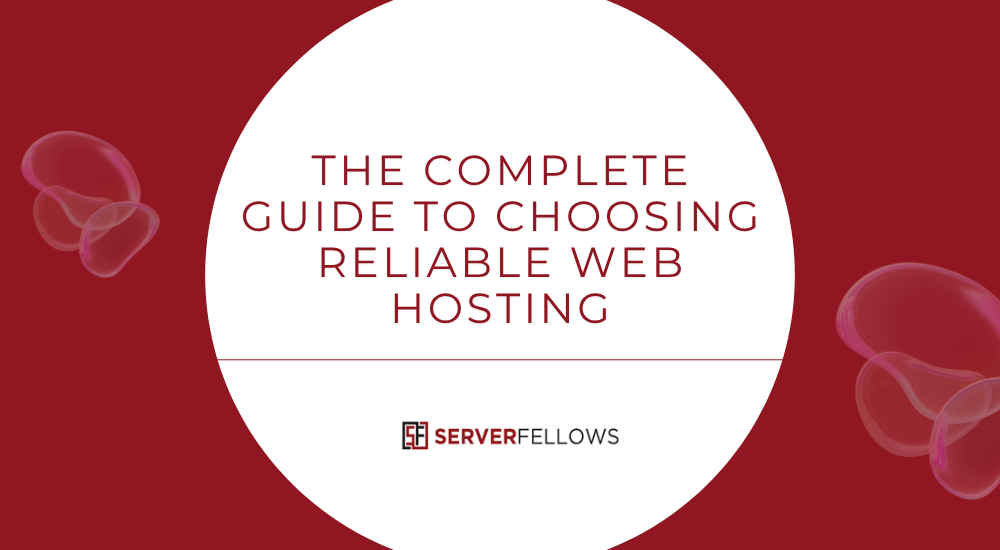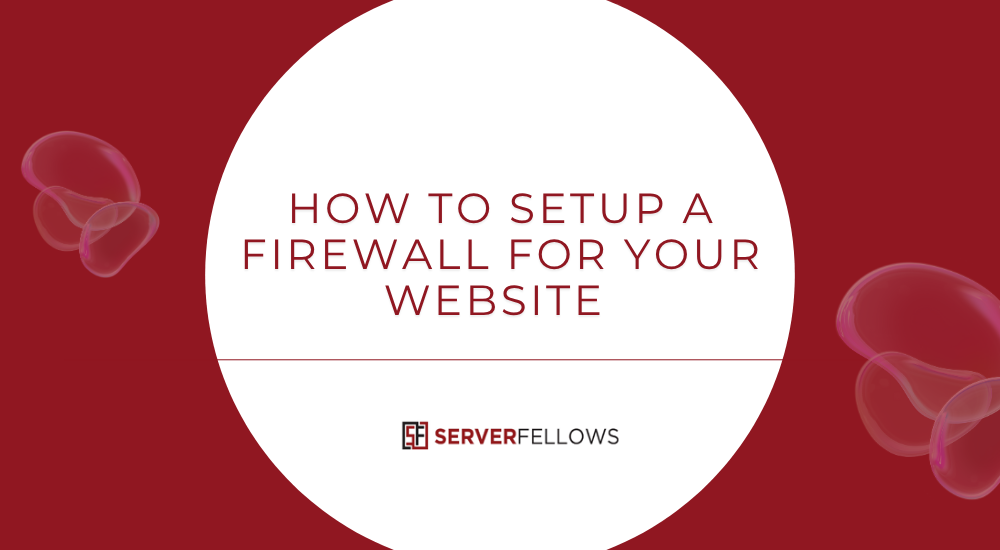
The Complete Guide to Choose Web Hosting
Selecting the right web hosting provider is one of the most critical decisions when building a website. Your host determines how fast your pages load, how secure your data remains, and how reliably your website performs. In this comprehensive guide to choose web hosting, we’ll explore the essential factors to consider before you commit to a hosting plan.
Whether you’re creating a personal blog, launching an eCommerce store, or managing multiple client websites, this article will help you make a confident, informed choice.
Why Choosing the Right Web Hosting Matters
Your hosting provider acts as the foundation of your digital presence. Even the most beautifully designed website can fail if it’s slow, insecure, or unavailable. Web hosting directly impacts key aspects such as:
- Website Speed: A slow website drives users away and affects search rankings.
- Security: A vulnerable server can compromise sensitive information.
- Reliability: Frequent downtime damages reputation and revenue.
- Scalability: As your website grows, your hosting should keep up.
- Support: Fast, competent support saves time and prevents frustration.
Without a reliable host, your website may struggle to stay online, lose organic traffic, and negatively influence brand trust. The next sections of this guide to choose web hosting explain how to evaluate providers effectively.
Factors to Consider Before You Choose Web Hosting
1. Uptime Guarantee
Uptime reflects how consistently your website stays online. A reliable host should provide at least 99.9% uptime. Even 0.1% downtime can translate to several hours of inaccessibility every year, which may cost businesses potential customers and SEO credibility.
Before signing up, review independent uptime records and service-level agreements (SLAs). Some hosts publish their uptime history transparently, which indicates accountability and reliability.
2. Website Speed and Server Performance
Search engines and visitors both prefer fast websites. Hosting speed depends on factors such as:
- Server hardware (SSD vs. HDD)
- Data center technology
- Caching and CDN integration
- Network bandwidth capacity
Faster servers mean lower bounce rates and better conversions. Prioritize providers that invest in high-performance infrastructure with content delivery networks and advanced caching.
3. Security and Data Protection
Cybersecurity threats have grown exponentially, and your hosting provider should serve as your first line of defense. Look for hosts that include:
- Free SSL certificates
- Regular malware scans
- Automated backups
- Firewall protection
- DDoS mitigation
Additionally, check whether your hosting company updates its software regularly and maintains strict access controls. A secure environment builds trust with visitors and protects sensitive data such as customer information or payment details.
4. Scalability and Resource Flexibility
Your hosting requirements evolve over time. You might start with a shared hosting plan and eventually need to move to VPS or dedicated servers. Choose a provider that allows seamless scaling without migration headaches.
Reliable hosts offer flexible resource upgrades — including CPU, RAM, and storage — within the same platform. This ensures your site can handle traffic spikes and business growth effortlessly.
5. Quality of Customer Support
Even with the best setup, technical issues can arise. Responsive and knowledgeable 24/7 support becomes invaluable during emergencies. Assess the host’s support options:
- Live chat availability
- Ticket response time
- Knowledge base resources
- Technical expertise level
A good support team resolves issues quickly and offers proactive advice to prevent future disruptions. When comparing providers, try contacting their support before subscribing to evaluate how well they respond.
6. Data Center Locations and Server Network
The physical location of servers affects site speed. The closer the data center is to your visitors, the faster your website loads for them. Choose a host with multiple global data centers or at least one close to your primary audience. Many top providers also use content delivery networks (CDNs) to serve data efficiently worldwide.
7. Backup and Recovery Systems
Reliable backups are non-negotiable. A hosting provider should automatically back up your website daily or weekly. Verify whether you can easily restore data through a control panel if something goes wrong. Backup redundancy — where multiple copies are stored securely — adds an extra layer of protection.
8. Pricing and Transparency
Cost should never be the only factor, but transparency is vital. Compare not just introductory prices but also renewal rates and hidden charges for add-ons. Some hosts lure customers with ultra-low pricing only to raise fees later. Review the entire pricing structure before you commit.
Value lies in performance, reliability, and support — not the cheapest plan.
9. Compatibility and User Interface
Your hosting dashboard determines how easily you can manage your site. Choose a provider that offers an intuitive control panel like cPanel or a custom-built dashboard that’s user-friendly and efficient. Compatibility with popular CMS platforms like WordPress or Joomla also makes setup smoother.
10. Reputation and User Reviews
Before making a decision, research the hosting company’s reputation. Look for consistent positive feedback regarding uptime, speed, and customer service. Independent review sites and tech communities often provide insights beyond marketing claims.
Real customer experiences reveal how well the host performs under pressure and whether it truly delivers on promises.
Step-by-Step Guide to Choose Web Hosting
Here’s a simplified process to follow before finalizing your hosting plan:
- Define your goals – Identify whether you’re building a blog, store, or portfolio.
- Assess technical needs – Estimate bandwidth, storage, and software requirements.
- Shortlist providers – Compare plans from top-rated hosting companies.
- Evaluate reliability – Verify uptime, security features, and support accessibility.
- Test customer service – Contact support with questions to gauge responsiveness.
- Check scalability – Ensure you can upgrade seamlessly as your site grows.
- Review policies – Understand refund, migration, and data retention terms.
- Make an informed choice – Choose the host that balances performance, cost, and trust.
Common Questions About Choosing Hosting
Is cheap hosting reliable?
Not always. Many low-cost plans compromise performance or customer support. While budget-friendly options are suitable for small projects, businesses should prioritize quality and uptime over cost.
Does web hosting affect SEO performance?
Yes. Hosting influences loading speed, uptime, and overall user experience — all factors that affect your search rankings. A faster, more stable host can improve your visibility and organic traffic.
Can I switch hosting providers later?
Absolutely. Most reputable hosts offer free migration services, allowing you to transfer your website without downtime. Still, it’s best to choose wisely the first time to avoid unnecessary transitions.
What type of hosting should I start with?
Beginners can start with shared hosting for affordability and simplicity. As your website attracts more traffic, consider upgrading to VPS, cloud, or dedicated hosting for enhanced control and performance.
How important are backups?
Backups are critical for disaster recovery. They protect against accidental deletions, malware attacks, or technical failures. Always choose a provider with automated and easily restorable backups.
The Bottom Line
Web hosting is the invisible backbone that powers your online presence. A poor hosting choice can slow your site, affect user trust, and reduce revenue. But a strong one ensures consistent uptime, fast performance, and top-tier security.
This guide to choose web hosting highlights the most crucial factors — uptime, speed, scalability, security, and support — so you can make an informed, confident decision.
If you’re ready to take the next step, start with a trusted provider that prioritizes performance, reliability, and support.
Choose Serverfellows.com — web hosting designed for businesses that value speed, security, and growth.


